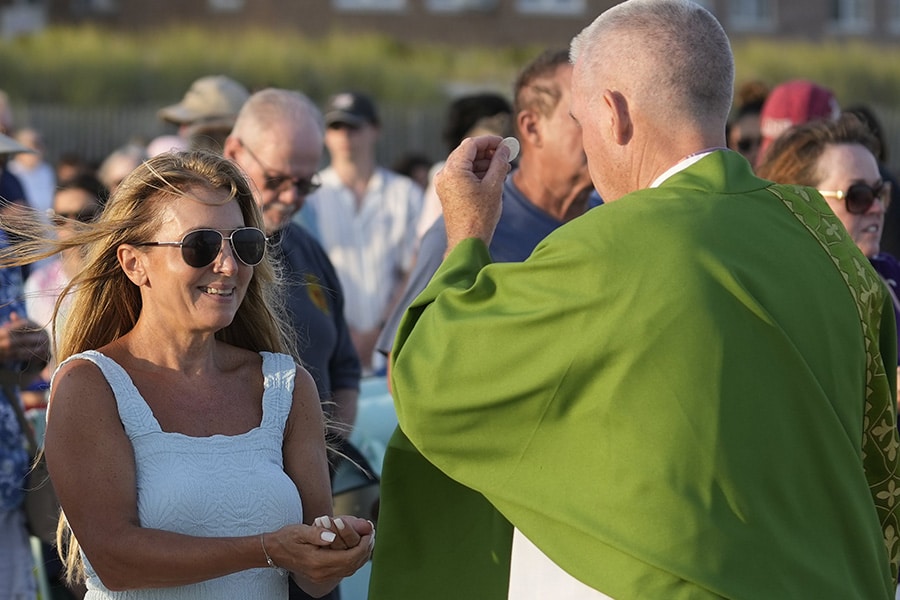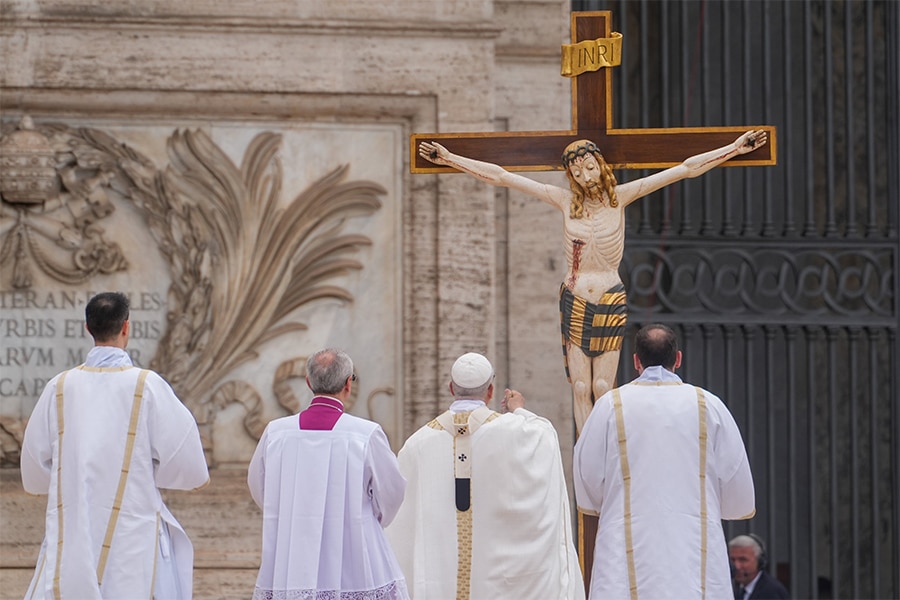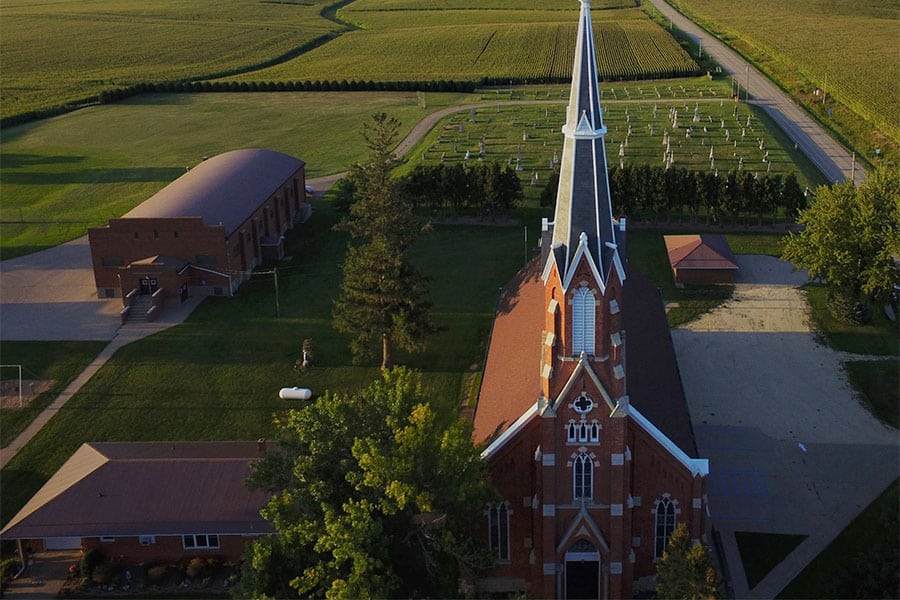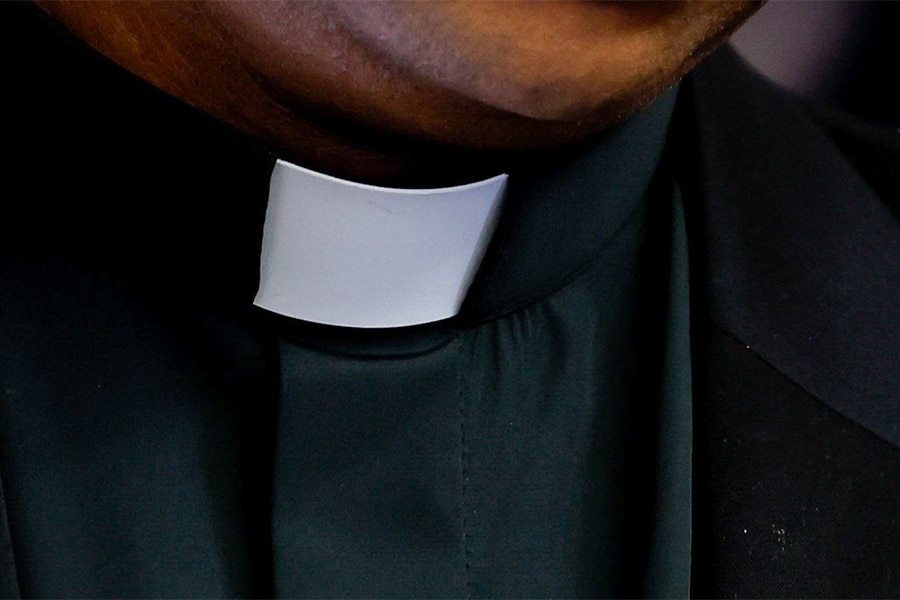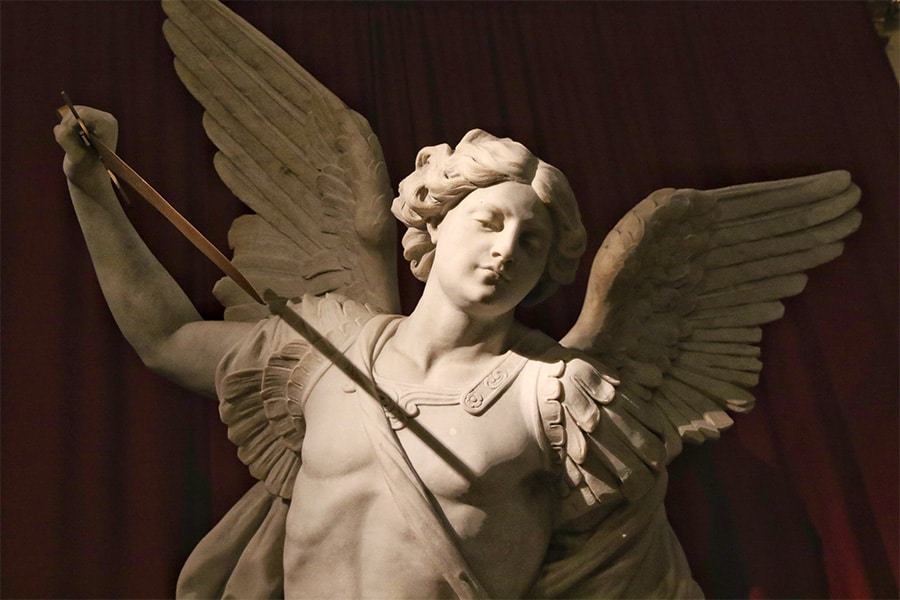Q. My husband converted to Catholicism before we were married 34 years ago. He was not big on going to confession. Now he has dementia. He comes to Mass with me on Sundays, after being away for quite some time.
I’m not sure that he could go to confession anymore because of his mental status. Does that mean that he can never receive the Eucharist again? And how will he be able to receive the last rites? (southern Indiana)
A. Here’s what I think you should do. Ask your parish priest (or another priest whom you know) to visit your husband. Explain to the priest — ahead of time — that your husband is dealing with dementia and may well not be able to confess his sins.
When he sees your husband, if the priest agrees with your assessment, then the priest can give him absolution simply by asking if he is sorry for any sins. After that, of course, your husband is free to take the Eucharist. I’m assuming that he recognizes that this is “special food” that somehow connects him with God — and I would be very generous in making that determination.
And as for the “last rites” (I prefer to call it the sacrament of anointing of the sick, because it can and should be administered when anyone is seriously ill, not just at death’s door), that one is even easier.
The anointing of the sick can be administered to any Catholic who asks for it, not just someone in the state of grace. And if the person is willing but unable to confess serious sins by number and kind, the priest can absolve him anyway.
Q. I’m looking for some direction on an old Catholic tradition — the nativity fast. Although I’m a lifelong Catholic, educated in Catholic schools, I had never heard of this until I watched a documentary about how Catholics celebrated Christmas during the Renaissance.
I’d love to learn how I can participate in this fast and why the tradition went away. As a Catholic millennial, I am looking for ways to be more introspective this Christmas and focus on the birth of Jesus, as it is easy to get distracted by all the festivities that come with this season. (Newport News, Virginia)
A. The nativity fast is still practiced today by the Eastern Orthodox Church and by Eastern-rite Catholics. It lasts for 40 days — from Nov. 15 through Dec. 24 — and offers Christians the opportunity to prepare for the feast of Christmas by disciplining their bodies.
By abstaining from certain food and drink — particularly from meat, fish, dairy products, olive oil and wine — as well as by focusing more on prayer and almsgiving, the nativity fast seeks to make one more conscious of his or her dependence on God.
Christmas Eve (Dec. 24) is a strict fast day, called Paramony (literally, “preparation”) on which no solid food is eaten until the first star of the evening is seen in the sky. In general, those participating in the nativity fast are encouraged to spend more time in reflective thought and in reading the Scriptures.
also see
Copyright © 2021 Catholic News Service/U.S. Conference of Catholic Bishops


